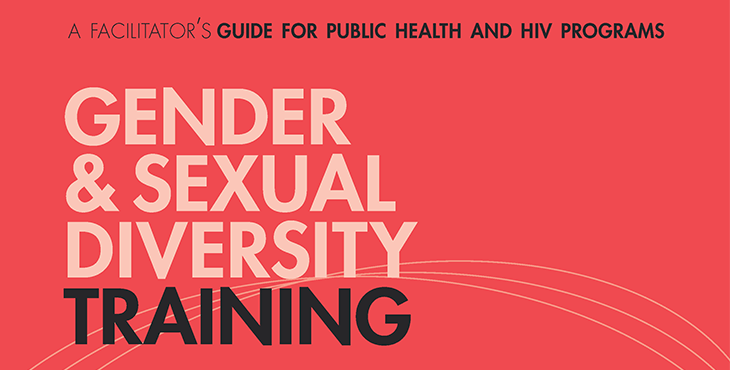The Health Policy Project ended in 2016. Work continued under Health Policy Plus (HP+) until 2022.
NEWS & VIEWS

December 16, 2015
WASHINGTON, DC—On Thursday, December 10—International Human Rights Day—the USAID- and PEPFAR-funded Health Policy Project (HPP) launched a new resource designed to improve health services for gender and sexual minorities worldwide. The Gender & Sexual Diversity Facilitator’s Guide and accompanying training slide deck were developed collaboratively by HPP and a number of U.S. government agencies, with input from local facilitators. They are intended to assist PEPFAR country programs and personnel to better understand and address the needs of gender and sexual minority communities. At the launch event, Cornelius Baker, chief policy advisor at PEPFAR’s Office of the Global AIDS Coordinator, stressed the importance of this assistance to the overall HIV response: “We cannot lead if we don’t know … [and] speak openly from our experiences.”
More than 30 HIV stakeholders attended the event, including representatives from several U.S. government agencies and implementing partners. The forum, entitled “HIV, Human Rights, and Gender & Sexual Diversity: Introducing a Facilitator’s Guide,” was hosted by HPP at its Washington, DC office.
Human rights, including rights for gender and sexual minorities, are a key component of PEPFAR’s larger strategy to end HIV and AIDS. The PEPFAR human rights agenda stresses access to HIV prevention, care, and treatment services for gender and sexual minorities. According to David Stanton, director of USAID’s Office of HIV and AIDS, human rights are the “unfinished business” of the epidemic. Stanton went on to say that it is imperative to proactively reach out to gender and sexual minorities. He stated, “The most insidious form of oppression is to ignore a people. We can’t provide services to people if we don’t acknowledge their existence.”
The forum’s moderated panel discussions featured experts from HPP, USAID, PEPFAR, and the Centers for Disease Control and Prevention. The first panel focused on facilitators’ experiences in implementing prior gender and sexual diversity trainings, while the second explored potential strategies for shaping the future direction of trainings. While attendees were free to participate openly in discussions, electronic live polling devices enabled audience members to engage anonymously throughout the event.
Download the Gender and Sexual Diversity Facilitator’s Guide
Download the Gender and Sexual Diversity Training Slide Deck
What's New
- Something to Build On: “Innovation Exchange” Celebrates the Health Policy Project’s Close and a New Beginning
- What Will it Take for Tanzania to Achieve ART Targets and Ensure Long-Term Sustainability of the HIV Response?
- Helping Kenya’s County Leaders Advocate for Increased Health Investments
- HPP Holds Working Meeting on Ensuring Responsible PEPFAR Transitions for Key Populations
- Health Policy Project Celebrates 2016 International Women's Day
- HPP Staff Participate in White House Conference on HIV Stigma Reduction

